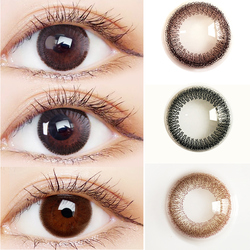Our planet is changing.So is our journalism.This story is part of Our Changing Planet, a CBC News initiative to show and explain the impacts of climate change and what is being done.
Ginger Merpaw of London, Ontario has been wearing contact lenses for nearly 40 years and had no idea the microplastics in the lenses would end up in waterways and landfills.
Bausch And Lomb Contacts
To minimize the enormous environmental impact of these tiny lenses, hundreds of optometry clinics across Canada are participating in a special program aimed at recycling them and their packaging.
The Bausch+ Lomb Every Contact Counts Recycling Program encourages people to bag their contacts to participating clinics so they can be packaged for recycling.
“You recycle plastic and stuff like that, but I never thought you could recycle contacts. When I took them out, I put them in the trash, so I just assumed they were biodegradable, never Think about anything,” Merpaw said.
About 20 percent of contact lens wearers either flush them down the toilet or throw them in the trash, Hamis said.His clinic is one of 250 Ontario locations participating in the recycling program.
“Contact lenses are sometimes overlooked when it comes to recycling, so this is a great opportunity to help the environment,” he said.
According to TerraCycle, the recycling company leading the project, more than 290 million contacts end up in landfills each year.The total is likely to increase as the number of daily contact with the wearer increases, they said.
“Small things add up in a year. If you have everyday lenses, you’re dealing with 365 pairs,” said Wendy Sherman, TerraCycle’s senior account manager. TerraCycle also works with other consumer goods companies, retailers and cities, Work for recycling.
“Contact lenses are such an important part of a lot of people, and when it becomes so routine, you often forget the impact it has on the environment.”
Launched two years ago, the program has collected 1 million contact lenses and their packaging.
Hoson Kablawi has been wearing contact lenses every day for over 10 years.She was shocked to hear that they could be recycled.She usually discards them in the compost.
“The contact is going nowhere. Not everyone wants to have Lasik, and not everyone wants to wear glasses, especially a mask,” she said.”With exposure, demand will continue to rise, and if we can do something to minimise waste, we should.”
“This [landfill] is where a lot of methane is produced, which is more efficient than carbon dioxide, so by removing certain aspects of the waste, you can minimise the impact it can have.”
The lenses themselves – along with their blister packs, foils and boxes – can be recycled.
They said Kablawi and Merpaw, along with her daughters, also wear contact lenses and will now begin collecting them in a container before handing them over to a local optometrist.
Bausch And Lomb Contacts
“It’s our environment. It’s where we live and we have to take care of it, and if it’s another step in the right direction to make our planet healthier, I’m willing to do it,” Merpaw added.
Information on participating optometry clinics across Canada can be found on TerraCycle’s website
CBC’s first priority is to create a website accessible to all Canadians, including those with visual, auditory, motor and cognitive impairments.
Post time: May-26-2022





